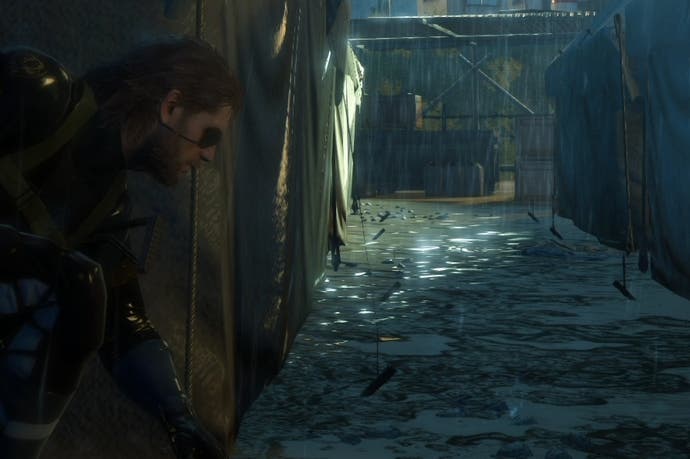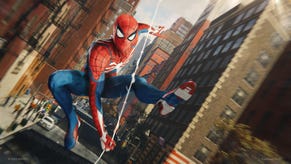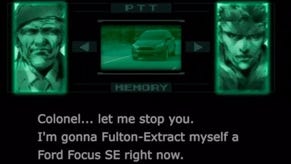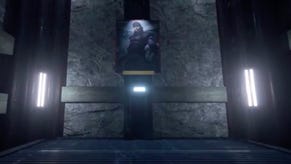Ground Zeroes shows open worlds how to be open
By getting back to Mother Basics.
By the basic measures that the phrase 'open world' suggests are most important, the battle between the competing playgrounds of inFamous: Second Son and Metal Gear Solid 5: Ground Zeroes ought to be no contest. In one camp we have the entirety of Seattle, recreated so that you can pilot yourself superheroically around it, while the other is literally just a camp - a few tents and admin buildings scattered around on a rock in the sea.
But as players will discover for themselves this weekend, it's the Kojima Productions game that feels more open. Despite its slender (speed) running time, Ground Zeroes' range of possibilities is wider and more interesting, with many of them only emerging over multiple playthroughs, nudged gently in new directions by unlockable Side Ops. inFamous: Second Son is a perfectly good open-world game, but while Seattle itself is expansive, the ageing routines of following people from rooftops and getting into punch-ups narrow the wide angles the skyline implies into something rather more claustrophobic.
Ground Zeroes is deceptively big and interesting, then, but it's also the latest signal that open-world games are rediscovering the sandbox mentality through which they forged their reputations. Two years ago Far Cry 3 showed us the way, refining the series' systems so players could tangle them up in unpredictable and entertaining ways rather than just tracing the outline of standard gameplay loops. Some of the best moments in Grand Theft Auto 5, meanwhile, were to be had in the actual sandbox of Blaine County, like Chris Donlan's legendary attempt to get a dog to chase him from one side of the map to the other.
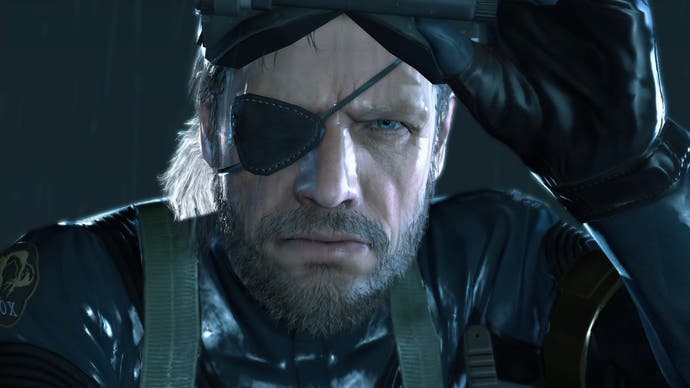
Open-world A-to-B quests with distractions, explosions and a sense of discovery are still great, as games like Assassin's Creed 4: Black Flag continue to demonstrate, but the sense of experimentation that distinguishes the likes of Ground Zeroes also makes them feel more authentic - as though they are not just open, but exist in a real world of rules and repercussions, which you have to pick through like a child learning about hot and cold. (On a related note, perhaps one reason that Metal Gear Solid inspires so much collectable merchandise is that in moments like these it feels as though you're bringing action figures to life through your own schemes, rather than just operating digital phantoms.)
"Ground Zeroes is the latest signal that open-world games are rediscovering the sandbox mentality through which they forged their reputations."
Metal Gear Solid has always had this mentality, of course, evident in the throwaway systems, playful items and environmental jokes that have typified every Snake campaign since before the days he was Solid. But it's elevated to a new level in Ground Zeroes, because the systems have been pared back by bowdlerised controls that allow for more elegant combinations, while the open play area and lashing rain mean that it's possible to react or retreat much more effectively, rather than just reaching for the last save checkpoint whenever the enemy discovers your location.
It makes me feel as though a lot of our most coveted open worlds are flattering to deceive. Assassin's Creed, the success of Black Flag notwithstanding, would gain so much from a revision of its core systems. As much as I've continued to enjoy the games despite the limitations in sword-fighting, stealth and traversal, those things could be so powerfully revitalising if they were re-envisaged with the same finesse that Ground Zeroes displays in its reimagining of Metal Gear Solid's convoluted interfaces. Perhaps this year's instalment can draw inspiration from its rumoured Revolutionary setting.
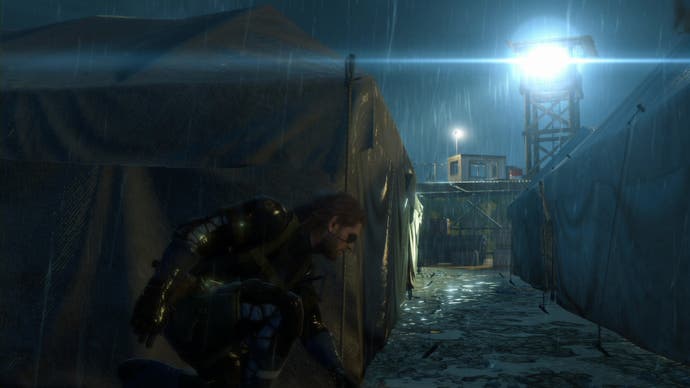
The interplay of systems in all the games I've mentioned so far is mostly focused on climbing, hiding or attacking, of course, and while they are often triple-A gaming's favourite verbs, there are plenty of others out there worth rolling around our gaming tongue. I'd love to see something like Deus Ex: Human Revolution's Blade Runner-inspired interrogations brought to bear in a world of fewer and more carefully authored non-player characters, for example, and allowed to interact more fully with something like L.A. Noire's crime-scene detection. Both games played around with the ideas of using evidence to support conversations, but both seemed to rein themselves in rather than fully delivering.
As good as it is, then, Ground Zeroes is also a reminder that we're only really scratching the surface of what's possible in the loosely defined genre of open-world games. At their best, what these games really present isn't open expanse, but open systems in an open space, however large it may be, inviting you to combine them until a solution presents itself that meets your criteria for satisfaction as well as success.
Open-world games are becoming ever more prevalent. Perhaps now we're seeing the freedom offered by their environments making its way into their mechanics, too.
